Winter 2020 Newsletter
Welcome Message from the Council Co-Chairs
Dear Hadassah Attorneys and Judges,
We hope that you and your families are healthy and safe during these challenging times.
This newsletter recaps memorable and inspiring national and local Attorneys and Judges Council events since our last edition in February 2020. It also highlights two upcoming and exciting programs: a conversation with US Supreme Court Marshal Pamela Talkin on February 21, and our inaugural book club meeting on January 12 when we will discuss Sisters in Law: How Sandra Day O’Connor and Ruth Bader Ginsburg Went to the Supreme Court and Changed the World.
Thank you very much to all of our committee members. We are delighted to announce that Merle Kahn has joined Dawn Goldstein as her co-chair of the Amicus Brief Program Committee. Additionally, Candy Cohen and Mandy Garver will co-chair the new Book Club Committee. Lynn Altshuler and Tema Sternberg continue to co-chair the Swearing In Program Committee. We also thank all of the volunteers who review amicus briefs and provide valuable input as to whether Hadassah should sign on to these briefs.
Please contact us with any questions or comments, and let us know if you would like to join our Council Steering Committee or any of our other committees. We welcome your input and look forward to working together to help Hadassah make a difference for the Jewish community and women in the United States and Israel.
Randa Maher and Tamar Sadeh
Co-Chairs, Hadassah National Attorneys and Judges Council
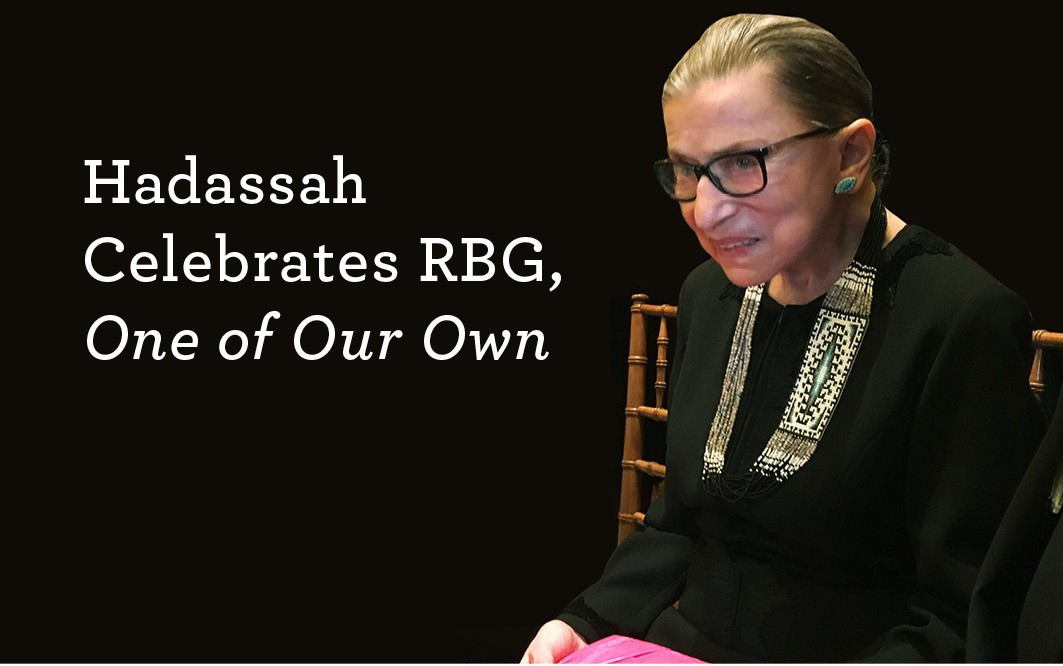 Remembering and Honoring Justice Ruth Bader Ginsburg
Remembering and Honoring Justice Ruth Bader Ginsburgby Rabbanit Adena Berkowitz
At the end of October, Hadassah held a moving Zoom memorial for Supreme Court Justice Ruth Bader Ginsburg. Timed to coincide with the conclusion of shloshim, the traditional Jewish 30-day mourning period, the memorial gave us greater insight into this pathbreaking jurist. Speakers included Hadassah National President Rhoda Smolow, Editor-in-Chief/CEO of Moment Magazine, Nadine Epstein, Esteemed Attorney Nathan Lewin, Hadassah Executive Director/CEO Janice Weinman, Rabbi Rebecca W. Sirbu, Director of Hadassah’s Engagement Division, and moderator Carole Greenfield, Chair of Hadassah’s Professional Councils.
I was honored to participate in this program as founder of the Hadassah Attorneys and Judges Council and to share recollections of the extraordinary welcome that Justice Ginsburg extended to the Hadassah Attorneys and Judges Council at the Supreme Court. The genesis of the yearly attorneys’ event goes back to the 1990s, when, at the behest of then-Hadassah National President Marlene Post, I consulted with Hadassah to establish the national council. In 1995, I worked with Hadassah volunteer Lee Lobel-Zwang, to design a mission to Washington, DC, that would start with a kosher breakfast and Swearing-In Ceremony at the Supreme Court.
Our first post-Swearing In meeting featured Justices Sandra Day O’Connor and Ginsburg, and they couldn’t have been more friendly and gracious. But it was the Swearing In Ceremony a year later that most stands out in my mind. Justice Ginsburg agreed not only to meet with us but to address our group of Hadassah attorneys. She spoke with pride of her Jewish heritage and its emphasis on justice and ethical values. Then, she shared the story of her mother’s death, on the eve of her high school graduation. She recalled how the Conservative synagogue to which her family belonged would not permit her to say Kaddish for her mother, Celia. The pain she felt, Justice Ginsburg told us, found an echo in a letter that she discovered years later but had been written decades before by Henrietta Szold. In that famous letter, Szold eloquently declined the offer of family friend Haym Peretz to say Kaddish for her mother, Sophie. Justice Ginsburg said then, and repeated throughout her life, that Szold’s letter served as a source of personal inspiration. I still recall how there wasn’t a dry eye in our group when we heard her recount this very personal story.
As Kaddish is recited throughout the year in memory of Justice Ginsburg, we will recall her not only as a remarkable jurist but also a proud Jew. We can feel honored that she felt such a strong connection to Hadassah and welcomed us with such generosity of spirit for so many years. May her memory be for a blessing.
In case you missed it, watch a recording of our RBG memorial here.
Rabbanit Adena Berkowitz, an attorney, practicing therapist, member of Hadassah and Founder of the Hadassah Attorneys and Judges Council, is scholar in residence at Kol HaNeshamah in New York City and senior educator at the Manhattan Jewish Experience.
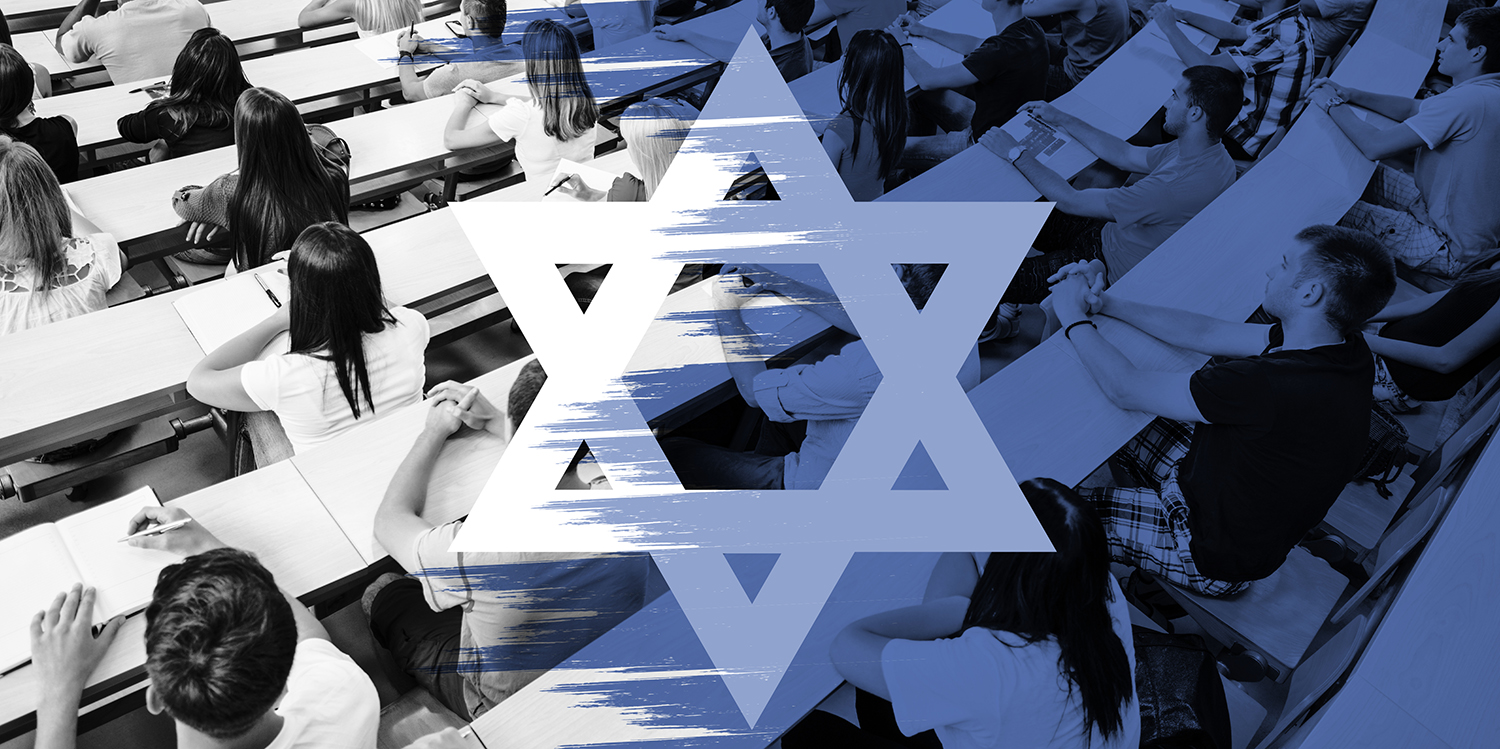 Two Women Combat Antisemitism on Campus
Two Women Combat Antisemitism on Campus
by Tamar Sadeh
The Attorneys and Judges Council in partnership with Education & Advocacy and the Combat Antisemitism Movement presented Antisemitism on Campus: Two Women's Struggle to Protect Jewish Students Nationwide. The inspiring conversation focused on challenging the increasing antisemitism students confront on campuses from both the left and the right.
Adela Cojab, an activist, public speaker, and author, described the anti-Zionism she faced as an undergraduate at New York University (NYU). Cojab filed a legal action against NYU after consulting with Alyza Lewin, President and General Counsel of the Louis D. Brandeis Center for Human Rights Under Law, which advances the Jewish people's rights and combats antisemitism on campuses.
The complaint was brought under Title VI of the Civil Rights Act that forbids discrimination based on race, color, or national origin, and is interpreted to protect members of religious groups due to their shared ancestry and ethnicity. It was the first challenge after a 2019 Executive Order formalized this interpretation and connected Title VI to the International Holocaust Remembrance Alliance (IHRA) definition of antisemitism. The Department of Education Office of Civil Rights and NYU settled; NYU adopted the IHRA definition, recognized discrimination based on shared ancestry and ethnicity, and provided antisemitism training and a process for reporting harassment.
The IHRA working definition states: “Antisemitism is a certain perception of Jews, which may be expressed as hatred toward Jews. Rhetorical and physical manifestations of antisemitism are directed toward Jewish or non-Jewish individuals and/or their property, toward Jewish community institutions and religious facilities.” It provides eleven examples of antisemitism including: accusing Jews or Israel of inventing or exaggerating the Holocaust; denying the Jewish people's right to self-determination by claiming Israel is a racist endeavor; and comparing contemporary Israeli policies to Nazi policies.
According to Lewin, the IHRA definition is an important educational tool for recognizing the various forms of antisemitism. She explained that many people do not understand what antisemitism is, mistakenly thinking it is a free speech issue, rather than identity-based discrimination. Lewin emphasized Jews should be empowered to push back against pressure to reject a central part of our identity -- our peoplehood and connection to Israel. Cojab stressed she has learned that speaking up can make a meaningful difference.
Support for the IHRA definition is bipartisan. Hadassah is advocating for this definition to be written into law to provide clear standards to combat the rise of antisemitism.
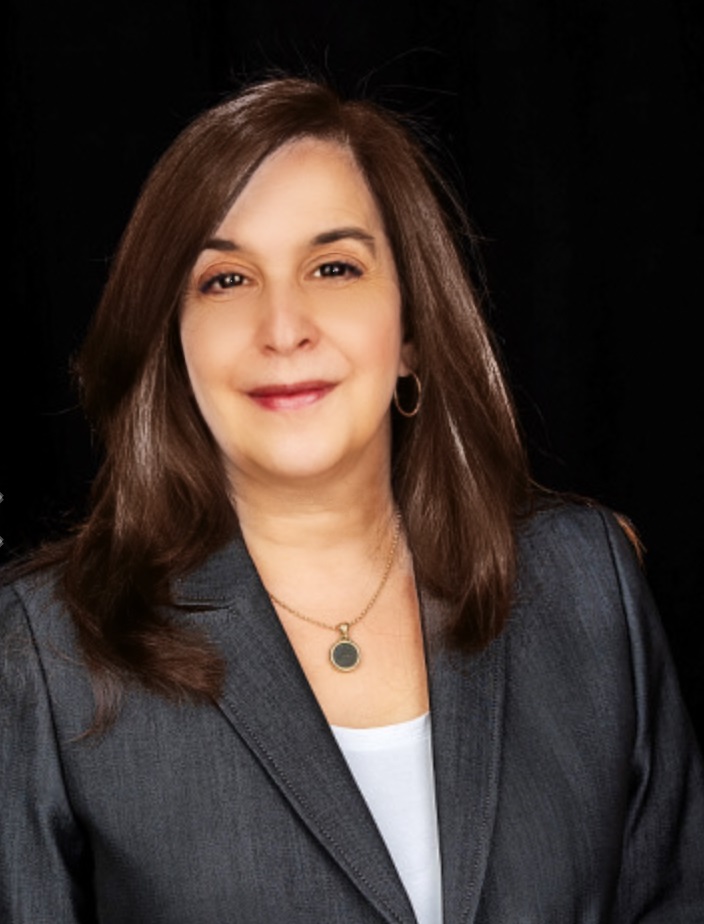 Council Member Spotlight:
Council Member Spotlight:Randa Maher, National Attorneys and Judges Council Co-Chair
The opportunity to co-chair Hadassah’s National Attorneys and Judges Council allows me to fulfill a lifelong dream of both advocating for the State of Israel, and against policies and issues adversely affecting Jewish women and their families across the US, such as antisemitism and the BDS movement. My father, an Iranian Jew, and my mother, whose parents fled Poland right before the Holocaust, came from markedly different worlds but with a common history of battling antisemitism. When my own children went to college, regardless of the university chosen, they, too, met the ugly face of antisemitism, often disguised as antizionism.
Growing up in New Jersey, in a small town with few other affiliated Jews, I first visited Israel as a college student in the early 1980s. After exiting Ben Gurion airport, I immediately felt a connection with a country I had heard much about but assumed would be no more than a desert. Boy, was I wrong! Three weeks later, I reluctantly returned to the US, already planning my next trip back. My continued love for Israel and desire to help the Jewish people first steered me to a Master’s Degree in Mideast Politics, and later, to law school, planning to become an international lawyer with a practice somehow involving Israel. Though my life instead led me to a career as a criminal defense lawyer helping the underserved, my deep devotion to Israel, and to advocating for issues critical to the Jewish people, have remained strong.
As a third-generation Life Member of Hadassah, I am passionate and proud of my role on the Attorneys and Judges Council, including its efforts to help promote IHRA’s working definition, and examples, of antisemitism. Along with the two established programs for which our Council is well-known -- the Supreme Court Swearing-In Program and the Amicus Brief Program -- since my co-chairing of the Council, we have added several new programs, including a Joint Council Mission to Israel. Although this trip temporarily has been postponed due to COVID-19, I remain tremendously excited to share, what promises to be an extraordinary, once in a lifetime, experience with other Hadassah attorneys and judges from across the nation, and with members of the Israeli legal community.
Hadassah Amicus Brief Program Update
by Merle Kahn and Dawn Goldstein
Co-Chairs, Attorneys and Judges Council Amicus Brief Program CommitteeThis year, Hadassah has joined several amicus curiae briefs. The Amicus Brief Program Committee volunteers help to decide which briefs to join based on our mission as a Jewish women’s organization. You can read Hadassah's policy statements and access the Amicus Brief Program kit. If you are interested in joining this work, please contact us at attorneysandjudgescouncil@hadassah.org. Here is a summary of some briefs that we have recently joined:
• June Medical Services LLC v. Russo, 140 S.Ct. 2130 (2020). Hadassah joined a brief in support of abortion access. The law required that a physician who provides abortions have admitting privileges at a hospital within 30 miles from where the abortion is provided. The Supreme Court found the law unconstitutional.
• Our Lady of Guadalupe School v. Morrissey-Berru, 140 S.Ct. 2049 (2020). Hadassah joined a brief in support of two elementary school teachers (both of whom taught secular subjects) who were fired from their respective parochial schools for reasons that violated anti-discrimination legislation. The Supreme Court held that the First Amendment precludes the state from interfering with employment decisions for religious institutions.
• Kennedy v. Bremerton School District, No. 20-3522 (9th Cir.). A Washington public school fired their football coach when he refused to stop holding a public prayer service on the 50-yard-line during football games. Hadassah joined a brief arguing that the actions of the football coach violated the Establishment Clause of the Constitution. This case is currently pending.
• Federal Republic of Hungary v Simon, No. 18-1447; Federal Republic of Germany v. Philipp, No. 19-351. Hadassah has joined briefs in support of the descendants of Holocaust survivors in their attempts to recover pieces of art stolen in the Holocaust. The briefs argue that the sale of the art constitutes genocidal takings. Oral argument was held at the Supreme Court on December 7, 2020.
• Commonwealth of Virginia v. Ferriero , No. 1:20-cv-242-RC (D.D.C.). In 1972, Congress passed the ERA. In January 2020, Virginia became the 38th state to ratify the ERA. The original legislation said that the states had to ratify the amendment within seven years of passage or by 1979. Hadassah joined a brief before the District Court for the District of Columbia arguing that the temporal limit is unconstitutional. The case is still being briefed.
• 303 Creative LLC v. Elenis, No. 19-1413 (10th Cir.). Hadassah joined a brief arguing that companies cannot discriminate against same-sex couples. This case was argued on November 16, 2020.
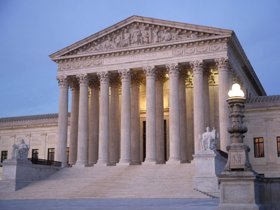 A Conversation with Pamela Talkin, Marshal of The Supreme Court
A Conversation with Pamela Talkin, Marshal of The Supreme Court
by Lynn Altshuler, Co-Chair Swearing In Program
Have you ever wondered how the Supreme Court works? Who is behind the scenes to make sure that everything runs like clockwork?
Hadassah’s Supreme Court Swearing In Committee is excited to present a virtual conversation with Pamela Talkin, the first woman to hold the position of Marshal of the Supreme Court. Her VIP job as Marshal is equivalent to that of the Chief Operating Officer of a large corporation. Join us on Sunday, February 21, 2021 at 7:30 pm ET to hear her insights on overseeing the operations of the Supreme Court and her fascinating life stories. Pamela Talkin is a Life Member of Hadassah and will be honored that evening with Hadassah’s Myrtle Wreath Award, one of the most prestigious tributes bestowed by Hadassah.
Marshal Talkin has supported the Swearing In Program at the Supreme Court for the past 19 years. Each year in February, Hadassah offers Life member attorneys and judges the opportunity to visit the Supreme Court and be sworn into the Supreme Court Bar. Each attorney or judge appears in front of all of the Justices, is sworn in and is welcomed by the Chief Justice. The group remains to hear oral arguments, meet with the Marshal and others at the Court, and tour the amazing Supreme Court Library. We attempt to meet with one of the Justices, (if schedules permit). The Swearing In Program has been described by participants as a once-in-a-lifetime, awe-inspiring experience.
The program begins with a dinner the evening before the Court visit, when we hear from a speaker related to the legal field. Prior speakers have included Adam Liptak, New York Times reporter; Marcia Coyle, PBS Newshour and Chief Washington Correspondent for the National Law Journal; Acting Solicitor Generals Seth Waxman and Ian Gershengorn; former Scotusblog editor Amy Howe; and Dahlia Lithwick of slate.com; among others.
We invite all alumni of the Swearing In program and anyone interested to hear from Marshal Talkin and to show our appreciation for her many years of support for Hadassah.
Due to the ongoing pandemic, the Supreme Court is not open to the public, and Hadassah’s Swearing In Committee is unable to offer this program in February 2021. We anticipate continuing the Program as soon as it is safe to do so.
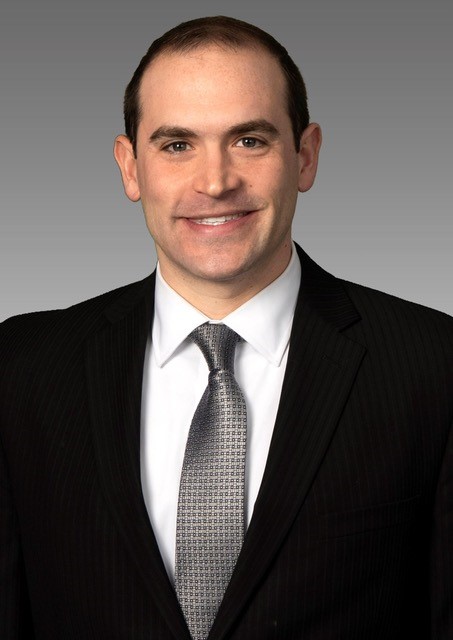 Holocaust Art Recovery Program
Holocaust Art Recovery Program
by Suzanna Lowe, Co-Chair, Detroit Attorneys and Judges Council
The Attorneys and Judges Council of Hadassah Greater Detroit held its second meeting on October 20, 2020. More than 60 Hadassah members from across the nation attended the virtual meeting. The program featured a presentation by attorney Jonathan H. Schwartz on the Holocaust Art Recovery Initiative. As President of the Jewish Bar Association of Michigan, Schwartz launched the Initiative with the goals of helping to inform the public about still-missing artwork looted from Holocaust victims and assisting in recovery efforts.
Schwartz began his presentation by discussing a range of impediments to the recovery of stolen artwork, including various countries’ refusal to return stolen art, make reparations, or otherwise cooperate. The worst of the offenders, he said, is Hungary.
In 1992, a trove of Hungarian documents, on 180 reels of microfilm, was donated to the Holocaust Memorial Center in Farmington Hills, MI. Mr. Schwartz described the documents as “smoking gun evidence” not only of the theft of artwork from Holocaust victims, but of the Holocaust itself. Written in several languages, the documents were translated by a Holocaust survivor who volunteers at the Center. With Schwartz’s assistance, she also created a spreadsheet of the data. The documents have been digitized by the US. Holocaust Memorial Museum and will be posted online.
In addition, Schwartz discussed the Holocaust Expropriated Art Recovery (HEAR) Act, which was enacted with bipartisan support in December 2016. Among other things, this law creates a uniform six-year statute of limitations for cases involving artwork stolen due to persecution during the Nazi era. Schwartz also discussed litigation related to claims for the recovery of stolen artwork and for reparations, including Republic of Hungary vs. Simon, which is pending before the US Supreme Court.
In conclusion, Schwartz suggested a multi-pronged approach to advance art recovery efforts: potential claimants should be made aware of looted artwork and the HEAR Act; government officials and legislators should be informed about the Act and encouraged to support additional recovery efforts and legislation, including extending the statute of limitations in the HEAR Act (which expires on December 31, 2026); the media needs to cover the problem of looted artwork; and the US government must sanction countries that refuse to return stolen art. Schwartz also encouraged “everyone, especially Jewish attorneys and judges, to make your voices heard and speak for those...who can’t any longer."
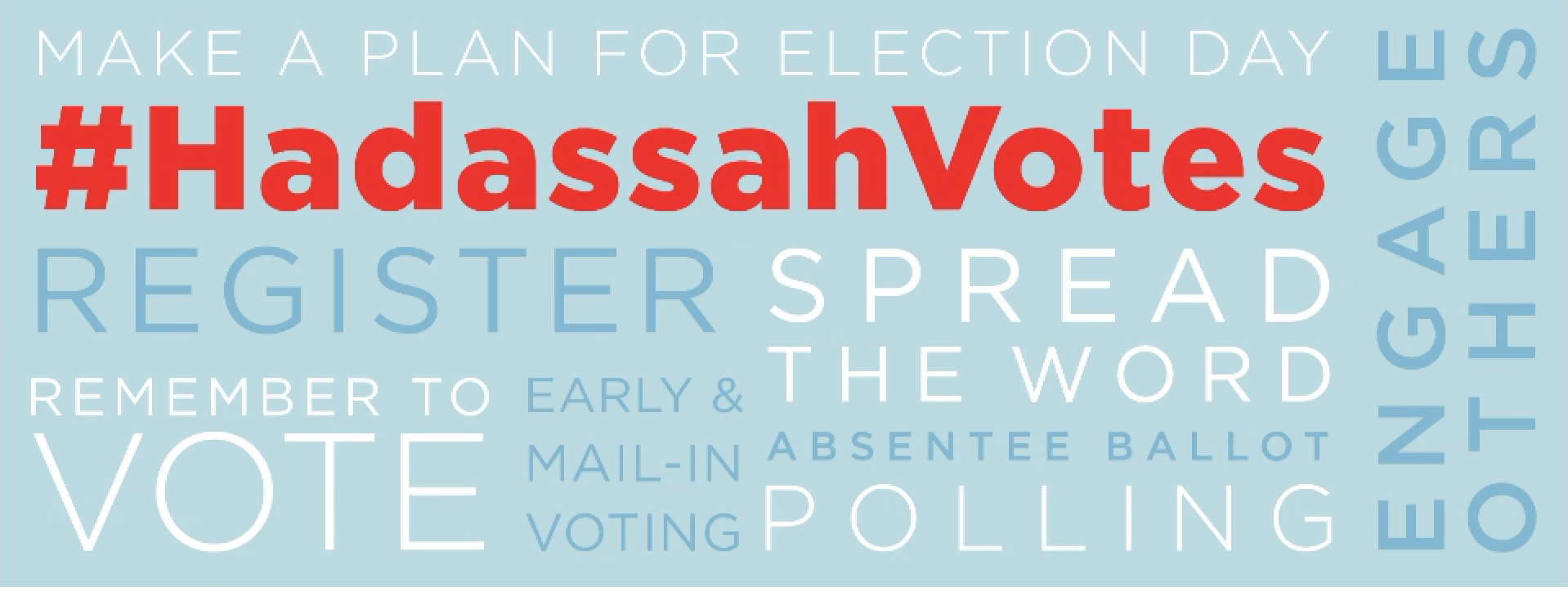 Hadassah Votes
Hadassah Votesby Flora Calem, Co-Chair, San Diego Attorneys and Judges Council
On October 13, 2020, San Diego’s Attorneys and Judges Council and local Hadassah’s Yachad group co-sponsored a virtual presentation, “Deciphering the Propositions,” with the League of Women Voters. Jeanne Brown gave an informative and educational presentation to 65 attendees. Brown, a past president of the League, is now Chair of the Criminal Justice Committee. She is also active with the Public Policy, Program and Sustainability Committees. The League, a non-partisan political organization, encourages informed and active participation in government, works to increase understanding of major issues, and influences public policy through education and advocacy.
The stem cell measure, which passed in the November election, will help accelerate development of treatments and cures for life threatening diseases and conditions.
The 13 statewide ballot propositions included issues related to criminal law reform (sentencing and cash bail), property taxation, rent control, voting rights for released prisoners and seventeen-year-olds, funding stem cell research, funding for the homeless, increased regulation of dialysis centers, data privacy, app based ride share and delivery driver employment law, and affirmative action in state hiring. Brown presented a slide show setting forth how each proposition got on the ballot, what the proposition would do, the fiscal bottom line, supporters and arguments, and opponents and arguments. The evening was a pleasant escape from the partisan bombardment of mail flyers and television ads.
Thank you to leader Deena Feinman, Director Hadassah West Coast, our local Yachad group, and San Diego’s Advocacy Chair Candy Cohen for supporting our efforts to be civically engaged.
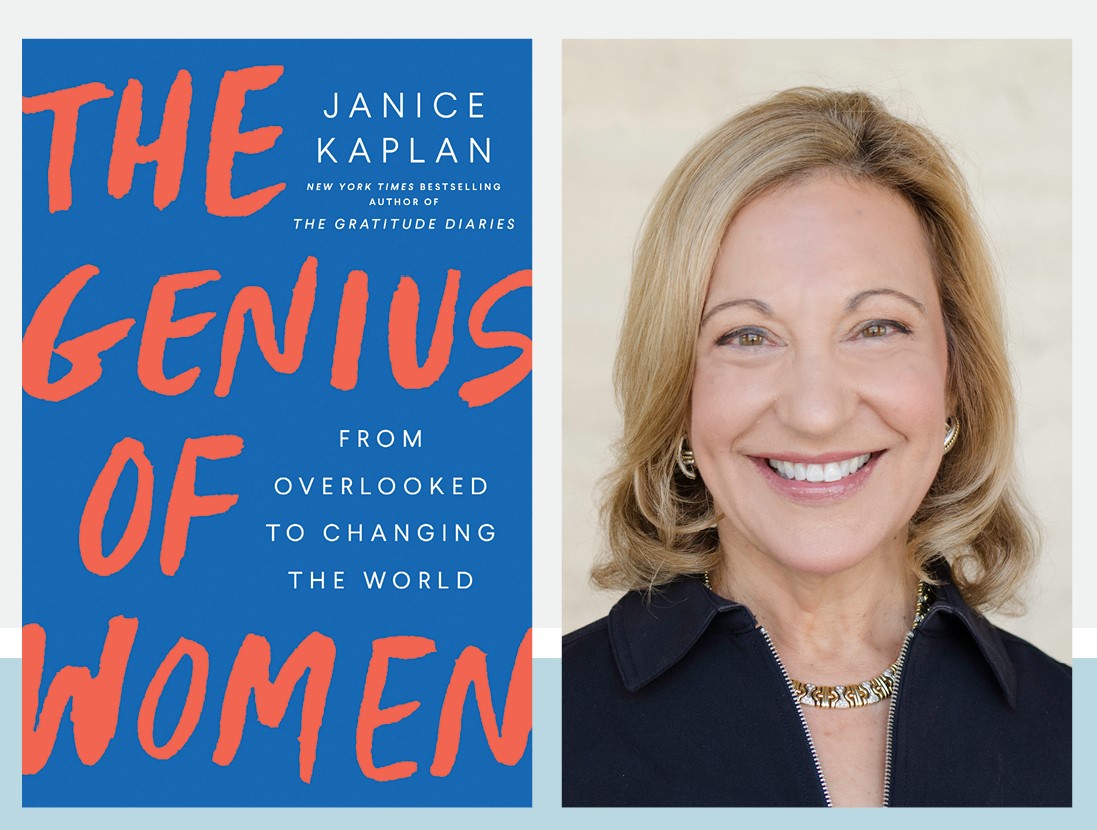 The Genius of Women with Janice Kaplan
The Genius of Women with Janice Kaplan
by Dulanjalee Abeyratne, Manager of Hadassah's Professional Councils, and Randa Maher
On March 4, 2020, Janice Kaplan, writer, magazine editor, keynote speaker, journalist, and TV producer, spoke about her new book, The Genius of Women, at an event organized by the Hadassah Attorneys and Judges Council. This event was held at Hadassah's National Office at 40 Wall Street in New York City. In her book, Kaplan explores both the rigged system that has kept women geniuses from being recognized, and the many women geniuses who have achieved so much, despite the obstacles in their way. Kaplan said she was inspired to write this book by an idea from her friend, Michael Berland, a noted pollster and strategist. Michael had mentioned that 90% of Americans believe that geniuses tend to be men.
Kaplan spent two years conducting research to write the book. In doing so, she came across an interesting definition for the word "genius," namely that it's "where extraordinary talent meets celebrity." Kaplan realized that there were many talented women who have done great work, but the reason they weren't recognized as geniuses was because they lacked the celebrity to get them noticed.
Kaplan proceeded to provide examples of women geniuses whose work was undermined during their time. Lise Meitner, a Jewish woman in Berlin in the 1930s, was an extraordinary scientist who discovered nuclear fission. However, the Nobel Prize Committee couldn't fathom that a woman would have made this discovery and instead decided to award the Nobel Prize in Chemistry to Meitner’s male research partner, Otto Hahn. Why couldn't the Nobel Committee imagine that a woman would make scientific discoveries? Kaplan said this is partly due to confirmation bias, explaining that people have preconceived notions about men and women and it's sometimes hard to change these biases.
Fanny Mendelssohn, the older sister of composer, Felix Mendelssohn, is another woman highlighted by Kaplan whose genius was undermined. Although Fanny was the better musician, when she was 14 years old, her father told her to stop composing music and instead take up domestic work. Despite getting married, Fanny continued to compose. Most of her pieces were published under her brother's name. In fact, Felix once was invited to the Buckingham Palace by Queen Victoria, who had praised him for a composition which actually had been composed by Fanny.
Kaplan spoke of several more women, including artist Clara Peters, who was a contemporary of Rembrandt, and wasn’t recognized as a genius until very recently. She concluded her talk suggesting how we, as women, can make our own genius flourish. Every woman genius that Janice met had one person who supported them. She said that while the whole world is not going to back you, if you want to accomplish great things in your field, you only need one person to truly move you forward. We should each try to be that inspiration for somebody else.
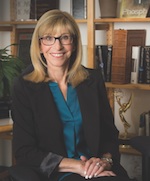 Science and Social Justice
Science and Social Justiceby Dulanjalee Abeyratne
Paula Apsell, Hadassah member and the winner of a Lifetime Achievement Emmy for her role as senior executive producer for PBS's acclaimed NOVA series, was the speaker on a recently held webinar presented by the Hadassah Professional Councils. This program, titled “Understanding the Role of Science in Promoting Social Justice and Improving our Lives,” was held on July 28 and explored how science can help better people's lives, especially in underserved communities.
Apsell was interviewed by Lisa Hostein, Executive Editor of
Hadassah Magazine, on a wide variety of topics. Apsell described how science plays an integral role in promoting social justice. As an example, we watched a short clip about the water crisis in Flint, Michigan, and how this man-made disaster has affected so many citizens in this city. Apsell also shared a preview of a NOVA episode that documents how scientists discovered escape tunnels created by Jews during the Holocaust in Luthuania.
Apsell spoke at length about women in technology, particularly how girls and young women should be encouraged to pursue careers in IT. She provided examples from her personal and professional lives. She also referred to the disparity in hiring minorities in the workplace, and discussed how best to solve this problem. Throughout this webinar, Apsell emphasized how science can provide practical solutions to some of the world's most persisting problems, such as global warming.
This illuminating webinar was sponsored by Hadassah’s Professional Councils, which include the Attorneys and Judges Council along with the Physicians Council and the Nurses and Allied Health Professionals Council. You can now watch the recording by clicking
here.
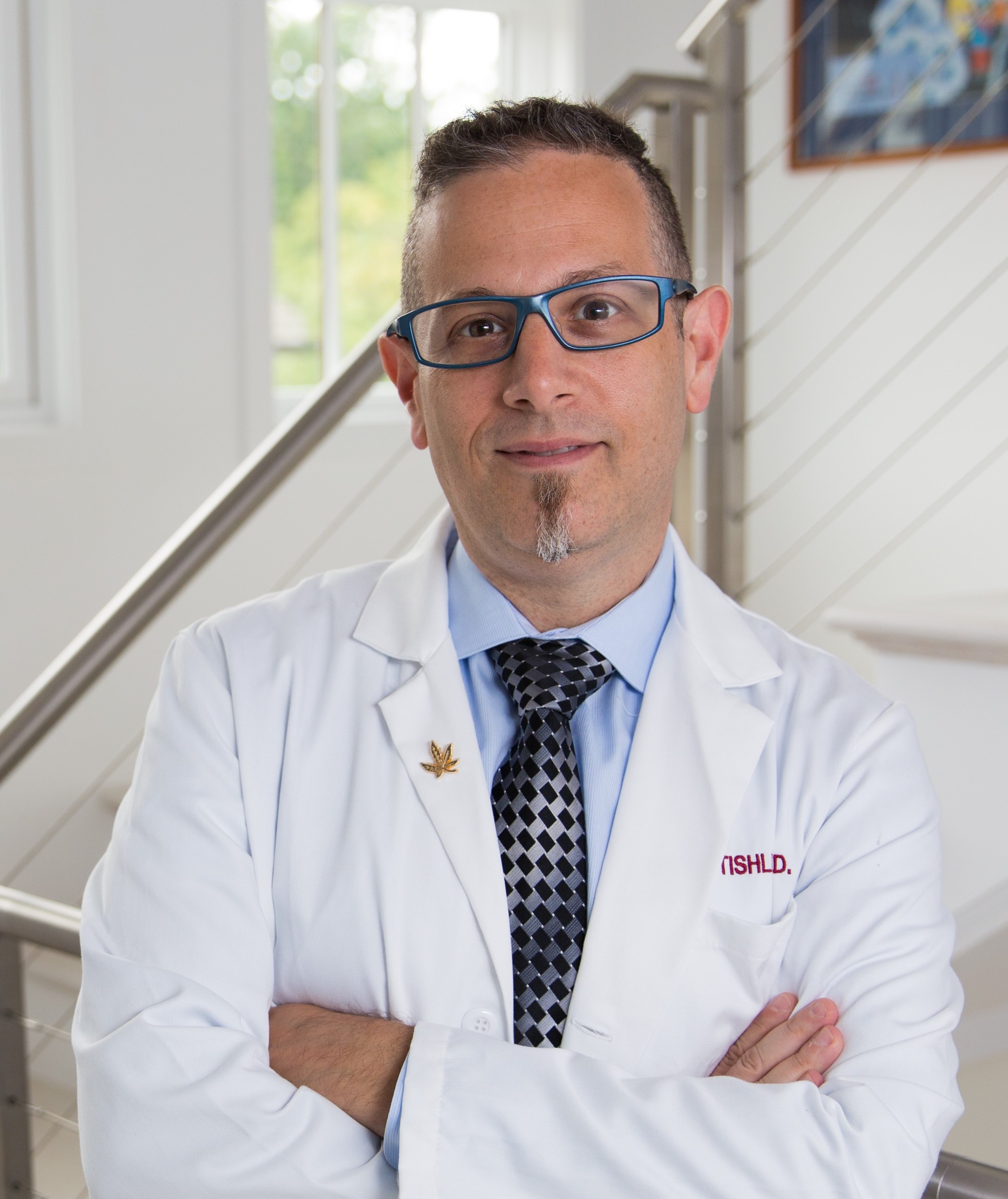 Medical Marijuana Update
Medical Marijuana Updateby Dulanjalee Abeyratne
Hadassah's Professional Councils, in collaboration with Congregation Shalom of Concord in Massachusetts, sponsored a webinar titled "Medical Marijuana: Highs and Lows, Smoke and Mirrors" on September 15, 2020. The speaker, Dr. Jordan Tishler, is a Cannabis Specialist, and was trained at the Brigham and Women’s Hospital in Boston. While caring for his patients through his private practice "InhaleMD," he also works on the faculty of both the Brigham & Women’s Hospital and Harvard Medical School.
In his captivating presentation, Dr. Tishler talked about the symptoms that can be treated by medical cannabis: pain, insomnia, anorexia and depression, to name a few. He explained the current research that exists in testing the use of cannabis to treat cancer and neurological illnesses. Dr. Tishler added that cannabis has different effects depending on methods of administration. He argued that the key to creating safe and effective medical care via medical cannabis treatment is through close medical guidance. At the end of his presentation, Dr. Tishler participated in an engaging Q&A session. You can watch the entire program by clicking
here.
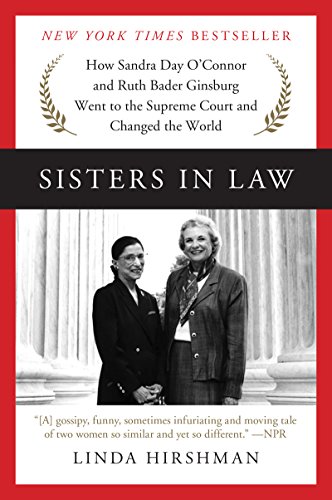 Our New Book Club Kicks Off
Our New Book Club Kicks Offby Candy Cohen, Co-Chair, Attorneys and Judges Council Book Club Committee
The Hadassah Attorneys and Judges Council Book Club gets underway with four thought-provoking books chosen by our new Book Club Committee. Avid readers in our Council now have a book club focused on interests that the legal profession will enjoy reading and discussing. Books will alternate between non-fiction and fiction. The first meeting will be on January 12, 2021, 7:30 pm ET and discuss Sisters in Law: How Sandra Day O’Connor and Ruth Bader Ginsburg Went to the Supreme Court and Changed the World by Linda Hirshman.
The meeting will lead with a 10 minute icebreaker allowing members to discuss their favorite quotes by Justice Ginsburg. Participants may use quotes from Ruth Bader Ginsburg In Her Own Words edited by Helena Hunt. This paperback has quotes by Justice Ginsburg and a timeline of her milestones. Then the facilitator will start the discussion of Sisters in Law.
Additional dates and books for 2021 are: April 13: Miracle Creek by Angie Kim; July 13: Summer for the Gods: The Scopes Trial and America’s Continuing Debate over Science and Religion by Edward Larson; and October 19: Snow Falling on Cedars by David Guterson.
Each meeting will be lead by a volunteer facilitator. A Zoom link will go out to all who register at least 10 days in advance. Anyone interested in facilitating the meeting for one of the books is welcome to contact the Co-Chairs, Mandy Garver at mandygarver@gmail.com or Candice Cohen at candy.cohen.cc@gmail.com.

|
|
|
|
|
|
Hadassah, The Women's Zionist Organization of America, Inc.
40 Wall Street New York, NY 10005
|
|
 Remembering and Honoring Justice Ruth Bader Ginsburg
Remembering and Honoring Justice Ruth Bader Ginsburg Two Women Combat Antisemitism on Campus
Two Women Combat Antisemitism on Campus
 Council Member Spotlight:
Council Member Spotlight: A Conversation with Pamela Talkin, Marshal of The Supreme Court
A Conversation with Pamela Talkin, Marshal of The Supreme Court Holocaust Art Recovery Program
Holocaust Art Recovery Program Hadassah Votes
Hadassah Votes The Genius of Women with Janice Kaplan
The Genius of Women with Janice Kaplan Science and Social Justice
Science and Social Justice Medical Marijuana Update
Medical Marijuana Update Our New Book Club Kicks Off
Our New Book Club Kicks Off